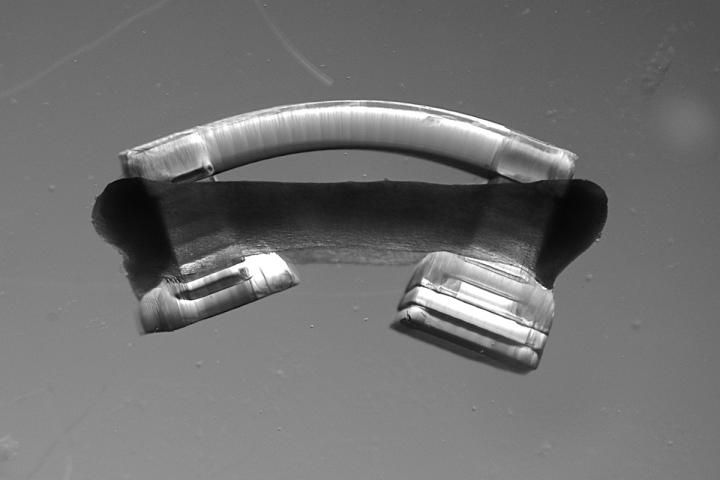CHAMPAIGN, Ill. — A new class of miniature biological robots, or bio-bots, has seen the light — and is following where the light shines.
The bio-bots are powered by muscle cells that have been genetically engineered to respond to light, giving researchers control over the bots’ motion, a key step toward their use in applications for health, sensing and the environment. Led by Rashid Bashir, the University of Illinois head of bioengineering, the researchers published their results in the Proceedings of the National Academy of Sciences.
“Light is a noninvasive way to control these machines,” Bashir said. “It gives us flexibility in the design and the motion. The bottom line of what we are trying to accomplish is the forward design of biological systems, and we think the light control is an important step toward that.”
